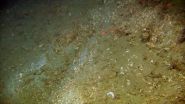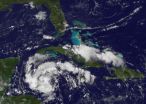(Press-News.org) Suppose a close friend who is trying to figure out the facts about climate change asks whether you think a scientist who has written a book on the topic is a knowledgeable and trustworthy expert. You see from the dust jacket that the author received a Ph.D. in a pertinent field from a major university, is on the faculty at another one, and is a member of the National Academy of Sciences. Would you advise your friend that the scientist seems like an "expert"?
If you are like most people, the answer is likely to be, "it depends." What it depends on, a recent study found, is not whether the position that scientist takes is consistent with the one endorsed by a National Academy. Instead, it is likely to depend on whether the position the scientist takes is consistent with the one believed by most people who share your cultural values.
This was the finding of a recent study conducted by Yale University law professor Dan Kahan, University of Oklahoma political science professor Hank Jenkins-Smith and George Washington University law professor Donald Braman that sought to understand why members of the public are sharply and persistently divided on matters on which expert scientists largely agree.
"We know from previous research," said Dan Kahan, "that people with individualistic values, who have a strong attachment to commerce and industry, tend to be skeptical of claimed environmental risks, while people with egalitarian values, who resent economic inequality, tend to believe that commerce and industry harms the environment."
In the study, subjects with individualistic values were over 70 percentage points less likely than ones with egalitarian values to identify the scientist as an expert if he was depicted as describing climate change as an established risk. Likewise, egalitarian subjects were over 50 percentage points less likely than individualistic ones to see the scientist as an expert if he was described as believing evidence on climate change is unsettled.
Study results were similar when subjects were shown information and queried about other matters that acknowledge "scientific consensus." Subjects were much more likely to see a scientist with elite credentials as an "expert" when he or she took a position that matched the subjects' own cultural values on risks of nuclear waste disposal and laws permitting citizens to carry concealed guns in public.
"These are all matters," Kahan said, "on which the National Academy of Sciences has issued 'expert consensus' reports." Using the reports as a benchmark," Kahan explained that "no cultural group in our study was more likely than any other to be 'getting it right'," i.e. correctly identifying scientific consensus on these issues. They were all just as likely to report that 'most' scientists favor the position rejected by the National Academy of Sciences expert consensus report if the report reached a conclusion contrary to their own cultural predispositions."
In a separate survey component, the study also found that the American public in general is culturally divided on what "scientific consensus" is on climate change, nuclear waste disposal, and concealed-handgun laws.
"The problem isn't that one side 'believes' science and another side 'distrusts' it," said Kahan referring to an alternate theory of why there is political conflict on matters that have been extensively researched by scientists.
He said the more likely reason for the disparity, as supported by the research results, "is that people tend to keep a biased score of what experts believe, counting a scientist as an 'expert' only when that scientist agrees with the position they find culturally congenial."
Understanding this, the researchers then could draw some conclusions about why scientific consensus seems to fail to settle public policy debates when the subject is relevant to cultural positions.
"It is a mistake to think 'scientific consensus,' of its own force, will dispel cultural polarization on issues that admit scientific investigation," said Kahan. "The same psychological dynamics that incline people to form a particular position on climate change, nuclear power and gun control also shape their perceptions of what 'scientific consensus' is."
"The problem won't be fixed by simply trying to increase trust in scientists or awareness of what scientists believe," added Braman. "To make sure people form unbiased perceptions of what scientists are discovering, it is necessary to use communication strategies that reduce the likelihood that citizens of diverse values will find scientific findings threatening to their cultural commitments."
INFORMATION:
The Journal of Risk Research published the study online today. It was funded by the National Science Foundation's division of Social and Economic Sciences.
Why 'scientific consensus' fails to persuade
Individuals with competing cultural values disagree about what most scientists believe
2010-09-14
ELSE PRESS RELEASES FROM THIS DATE:
New American Chemical Society podcast: Big building blocks from nanoparticles
2010-09-14
WASHINGTON, Sept. 14, 2010 — A new genre of construction materials, made with particles barely 1/50,000th the width of a human hair, is about to play a big role in the building of homes, offices, bridges, and other structures, according to the latest episode in the American Chemical Society's (ACS) award-winning podcast series, "Global Challenges/Chemistry Solutions."
A new Global Challenges podcast and website is highlighting both the potential benefits of these nanomaterials in improving construction materials and the need for guidelines to regulate their use and ...
First US trial of bone-marrow stem cells for heart attack patients proves safe
2010-09-14
The first randomized, placebo-controlled U.S. clinical trial to assess the use of bone marrow-derived mononuclear cells (BMC) in patients after a ST-elevation myocardial infarction (STEMI; severe heart attack) demonstrated a strong safety profile for this cell therapy, based on phase 1 results published in the September issue of the American Heart Journal.
"The use of adult stem cells, derived from the patient's own bone marrow, presents a potential new type of therapy to benefit individuals after they suffer a heart attack," says the study's principal investigator Jay ...
Women more likely than men to accept global warming
2010-09-14
EAST LANSING, Mich. — Women tend to believe the scientific consensus on global warming more than men, according to a study by a Michigan State University researcher.
The findings, published in the September issue of the journal Population and Environment, challenge common perceptions that men are more scientifically literate, said sociologist Aaron M. McCright.
"Men still claim they have a better understanding of global warming than women, even though women's beliefs align much more closely with the scientific consensus," said McCright, an associate professor with ...
Watercress may 'turn off' breast cancer signal
2010-09-14
The research, unveiled at a press conference today (14 September 2010), shows that the watercress compound is able to interfere with the function of a protein which plays a critical role in cancer development.
As tumours develop they rapidly outgrow their existing blood supply so they send out signals which make surrounding normal tissues grow new blood vessels into the tumour which feed them oxygen and nutrients.
The research, led by Professor Graham Packham of the University of Southampton, shows that the plant compound (called phenylethyl isothiocyanate) found ...
Researchers nationwide ask for new focus on 'sudden death' heart disorder
2010-09-14
(PHILADELPHIA) An abrupt, fatal heart attack in a young athlete on the playing field is a tragedy destined to repeat itself over and over until more is understood about hypertrophic cardiomyopathy (HCM), a genetic disorder that is the most common cause of sudden death in young people but which affects people of all ages. So says a task force of cardiologists and cardiac biologists, headed by Thomas L. Force, M.D., James C. Wilson Professor of Medicine at Thomas Jefferson University, in the September 14th online edition of the journal Circulation.
Their special report ...
Human impacts on the deep seafloor
2010-09-14
Scientists have for the first time estimated the physical footprint of human activities on the deep seafloor of the North East Atlantic. The findings published in the journal PLoS ONE reveal that the area disturbed by bottom trawling commercial fishing fleets exceeds the combined physical footprint of other major human activities considered.
The deep seafloor covers approximately 60% of Earth's surface, but only a tiny fraction of it has been studied to date. Yet as technology advances and resources from relatively shallow marine environments are depleted, human impacts ...
Global fisheries research finds promise and peril
2010-09-14
Global fisheries, a vital source of food and revenue throughout the world, contribute between US$225-$240 billion per year to the worldwide economy, according to four new studies released today. Researchers also concluded that healthier fisheries could have prevented malnourishment in nearly 20 million people in poorer countries.
This first comprehensive, peer-reviewed estimate of the global economic contribution of fisheries was published online today in four papers as part of a special issue of the Journal of Bioeconomics.
This research, conducted by the University ...
GOES-13 sees system 92L looking more like a tropical depression
2010-09-14
GOES-13 captured a look at System 92L this morning as it continues moving through the central Caribbean, and it's looking more and more like a tropical depression.
As the Geostationary Operational Environmental Satellite called GOES-13 satellite keeps relaying data to NOAA (who manages the satellite) and the NASA GOES Project at NASA's Goddard Space Flight Center in Greenbelt, Md., the images created by the NASA GOES Project reveal that System 92L appears to be taking on the appearance of a tropical depression. In the imagery captured today, Sept. 14 at 1340 UTC (9:40 ...
Neuralstem stem cells survive and differentiate into neurons in rats with stroke
2010-09-14
ROCKVILLE, Maryland, September 14, 2010 – Neuralstem, Inc. (NYSE Amex: CUR) announced that its spinal cord stem cells survived in rat brains affected by stroke and differentiated predominantly into neurons. The transplanted animals showed significant improvement in some motor skill and strength measurements. The study entitled, "Intracerebral Implantation of Adherent Human Neural Stem Cells To Reverse Motor Deficits in Chronic Stroke Rats," was presented earlier today by senior study author, Dr. Shinn-Zong Lin, M.D., Ph.D., at the Stem Cells USA & Regenerative Medicine ...
Enigmatic star devours companion; possibly pregnant with second-generation planets
2010-09-14
An astronomer may have caught a cannibalistic star in the act of devouring a companion and making a second generation of exoplanets from the resulting orbiting disk.
Using data from NASA's Chandra X-ray Observatory, Joel Kastner, professor at Rochester Institute of Technology, has found evidence that a variable star in the constellation of Pisces, BP Piscium, is not the young star it appears to be, but is more likely a one billion-year-old red giant that has gobbled up a star or planet in its vicinity.
The star's extreme properties have puzzled astronomers since Kastner ...
LAST 30 PRESS RELEASES:
Study finds Earth may have twice as many vertebrate species as previously thought
NYU Langone orthopedic surgeons present latest clinical findings and research at AAOS 2026
New journal highlights how artificial intelligence can help solve global environmental crises
Study identifies three diverging global AI pathways shaping the future of technology and governance
Machine learning advances non targeted detection of environmental pollutants
ACP advises all adults 75 or older get a protein subunit RSV vaccine
New study finds earliest evidence of big land predators hunting plant-eaters
Newer groundwater associated with higher risk of Parkinson’s disease
New study identifies growth hormone receptor as possible target to improve lung cancer treatment
Routine helps children adjust to school, but harsh parenting may undo benefits
IEEE honors Pitt’s Fang Peng with medal in power engineering
SwRI and the NPSS Consortium release new version of NPSS® software with improved functionality
Study identifies molecular cause of taste loss after COVID
Accounting for soil saturation enhances atmospheric river flood warnings
The research that got sick veterans treatment
Study finds that on-demand wage access boosts savings and financial engagement for low-wage workers
Antarctica has lost 10 times the size of Greater Los Angeles in ice over 30 years
Scared of spiders? The real horror story is a world without them
New study moves nanomedicine one step closer to better and safer drug delivery
Illinois team tests the costs, benefits of agrivoltaics across the Midwest
Highly stable self-rectifying memristor arrays: Enabling reliable neuromorphic computing via multi-state regulation
Composite superionic electrolytes for pressure-less solid-state batteries achieved by continuously perpendicularly aligned 2D pathways
Exploring why some people may prefer alcohol over other rewards
How expectations about artificial sweeteners may affect their taste
Ultrasound AI receives FDA De Novo clearance for delivery date AI technology
Amino acid residue-driven nanoparticle targeting of protein cavities beyond size complementarity
New AI algorithm enables scientific monitoring of "blue tears"
Insufficient sleep among US adolescents across behavioral risk groups
Long COVID and recovery among US adults
Trends in poverty and birth outcomes in the US
[Press-News.org] Why 'scientific consensus' fails to persuadeIndividuals with competing cultural values disagree about what most scientists believe




